Why Does My Dog Have Diarrhea at Night Only?
It’s worrying when your dog has diarrhea. You’re wondering what’s wrong with them and whether they are sick. But it’s even more distressing when your pup seems to only have diarrhea at night.
Not only is that a problem for him, but it also disturbs your sleep (and is messy to deal with!).
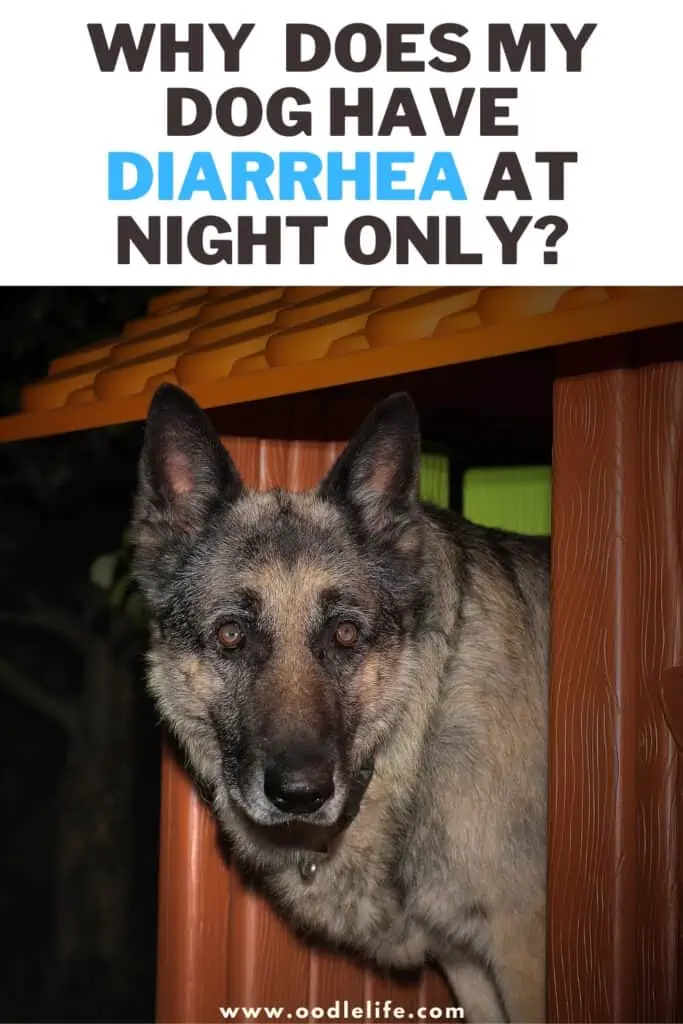
So, what to do when a dog has diarrhea at night only? We’ll discuss the general causes of diarrhea in dogs, and look at why your pup may only be having his diarrhea at night. We’ll go over other useful information, including diarrhea prevention, too.
Causes of Diarrhea in Dogs
Like in humans, there are many potential causes of diarrhea in dogs. Here are some of the most common sources below.
Parasites
Several common parasites lead to diarrhea in dogs. Let’s take a look at a few of the most common ones.
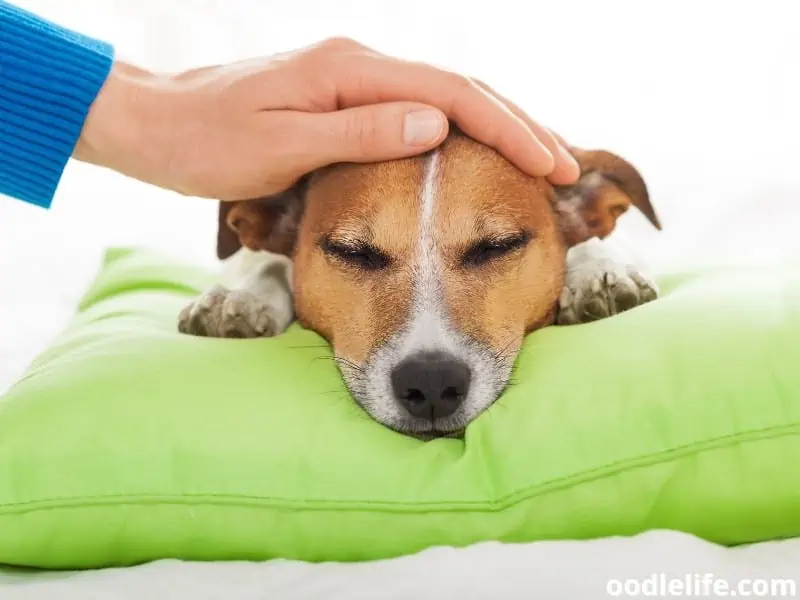
Hookworm
When a dog has hookworm, that means there are worms with mouths that hook onto areas in the small intestines. As well as diarrhea, symptoms of hookworm may include:
- Bloody stool
- Fatigue and weakness
- Weight loss
- Low appetite
Other potential symptoms (especially in puppies) include:
- Coughing
- Low coat luster
- Mucous membranes look pale
- General unhealthy look
If you think your pet might have parasites, such as hookworm, you’ll need to take them to your vet for diagnosis and treatment.
Roundworm
Roundworms are more common than hookworms. There are two types of roundworms. The more severe is Toxocara canis, and the other is Toxascaris leonina.
In addition to diarrhea, roundworm causes symptoms like:
- Weight loss
- Low coat luster
- Stomach pain
- Vomiting
- Fatigue and weakness
- Distended stomach
Roundworms can be visible in the dog’s vomit or diarrhea. Bring your dog to the vet if you think they have roundworms, so you can get your pooch the necessary treatment.
Coccidia
Coccidia is a single-celled type of parasite. If they’re present in your dog’s intestines, they live in the walls. If your dog is a puppy, he’s at higher risk of getting coccidia. It’s less common in full-grown dogs, but it can happen.
If the diarrhea is being caused by coccidia, you may notice that the diarrhea has an especially large amount of mucous. Other symptoms of coccidia include:
- Weight loss
- Vomiting
- Stomach pain
- Weakness and tiredness
Again, as with any other kind of parasite, your dog needs veterinary treatment if they have coccidia.
Food Allergies and Intolerances
Has your dog’s diet changed lately? If so, it might be that something they’ve recently eaten has caused diarrhea. It could be that they are allergic to something, or perhaps it’s a food intolerance.
Sit down and think about what your dog ate over the day or two before the diarrhea. Also, look around and consider whether there’s anything your dog could have eaten without you knowing. An example could be a plant from your garden.
If your dog has ingested something poisonous, such as a toxic plant or substance, this may lead to diarrhea. Dogs sometimes develop diarrhea if they swallow something they shouldn’t, like one of their toys.
- Dogs plus edibles = BAD
- Berries like mulberries tend to be fine
- Sugar is not great, fake sugars (such as xylitol) are toxic and require immediate veterinary treatment.
- Chewing and eating sticks or grass is normal
- Raw tuna is okay in small amounts, raw pork not so much
If you think your pet may have eaten something they shouldn’t, it’s best to take them to your veterinarian as soon as possible.
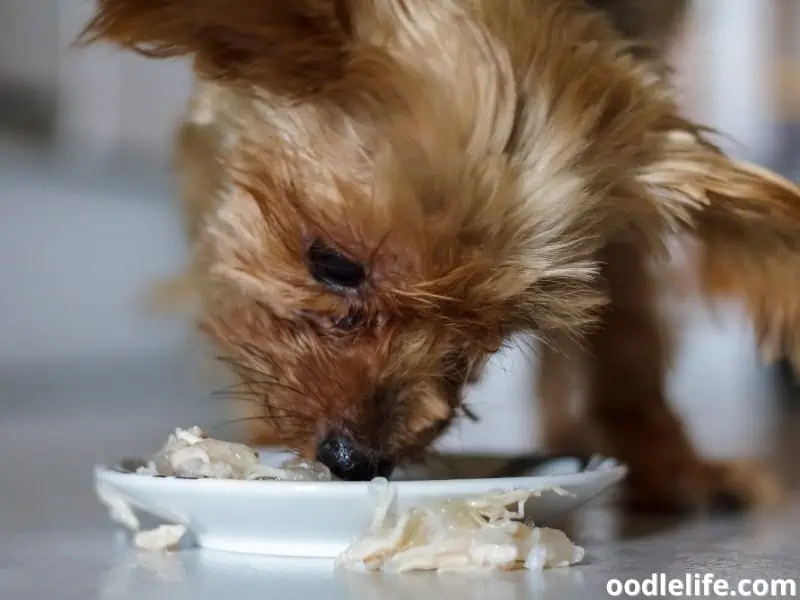
Emotional Issues and Stress
Like humans, dogs can end up with digestive issues like diarrhea when they’re feeling significantly stressed or emotional in a negative way. If you think this is what’s going on with your canine companion, find ways to cut down on the stress and make him feel more secure.
If you can’t figure out what to do, consult with a veterinary professional.
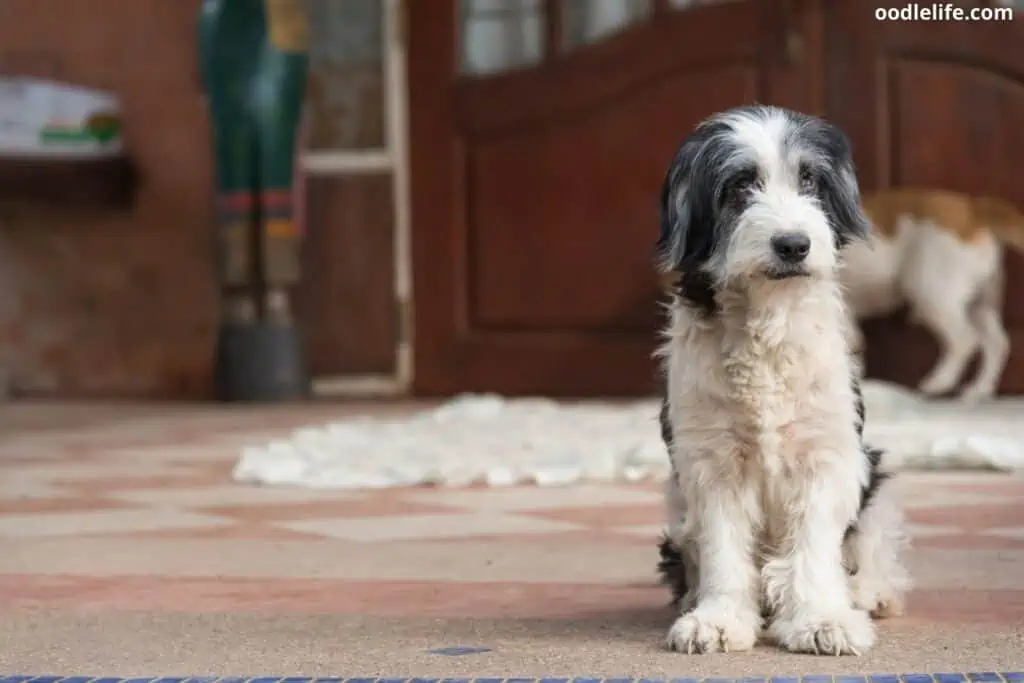
Health conditions
Diarrhea is what vets call a ‘non-specific’ symptom, this means that it’s commonly shown in many health problems. Some of the illnesses that may cause diarrhea include:
- Inflammatory Bowel Disease
- Cancer
- Stomach ulcers
- Inflammation anywhere in the body
- Infectious diseases
- Liver Disease
- Kidney Disease
Veterinarian Dr Charlotte Stiles (DVM)
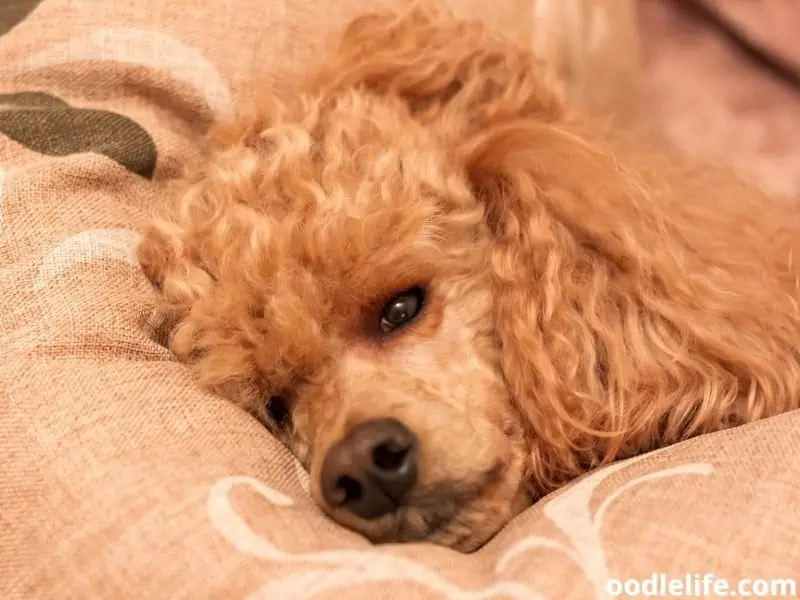

Why Does Your Dog Have Diarrhea at Night?
If your dog has suddenly started having diarrhea at night, it’s often a result of one of the following.
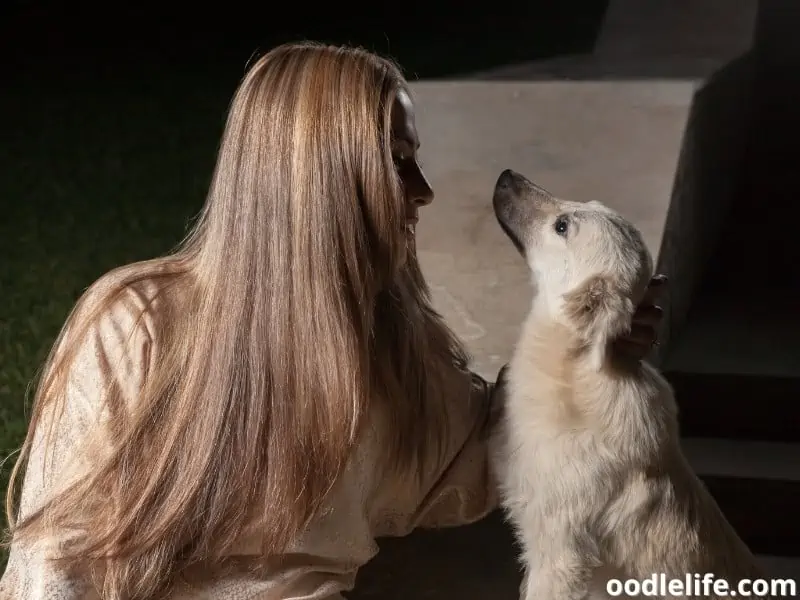
Parasitic Infection
Remember we talked about parasitic infections earlier? Your dog may have one of those and that’s why he’s suddenly started having diarrhea at night.
Parasitic infections are something that need treatment, so get your dog some veterinary attention. This is the only thing that will resolve the diarrhea problem and get your canine companion healthy again.
Allergies and Intolerances
Food allergies and intolerances may be the culprit for your pet’s nighttime diarrhea. For example, your dog may be allergic or intolerant to something they’ve eaten. Some of the common symptoms of this can be skin and ear problems, abdominal pain, bloating, and diarrhea.
Diet Change
If your dog has recently had some diet changes, this could be behind them developing sudden diarrhea at night. Start writing down everything you give your dog for his food. Think about whether your dog may have eaten something without your knowledge.
Should You Bring Your Dog to the Vet?
If you think there’s any chance your dog is sick, you should bring him to the veterinarian for examination. It’s particularly crucial if you suspect a serious illness.
Chronic diarrhea can also have a detrimental effect on your pet’s health and lead to dehydration and weight loss.
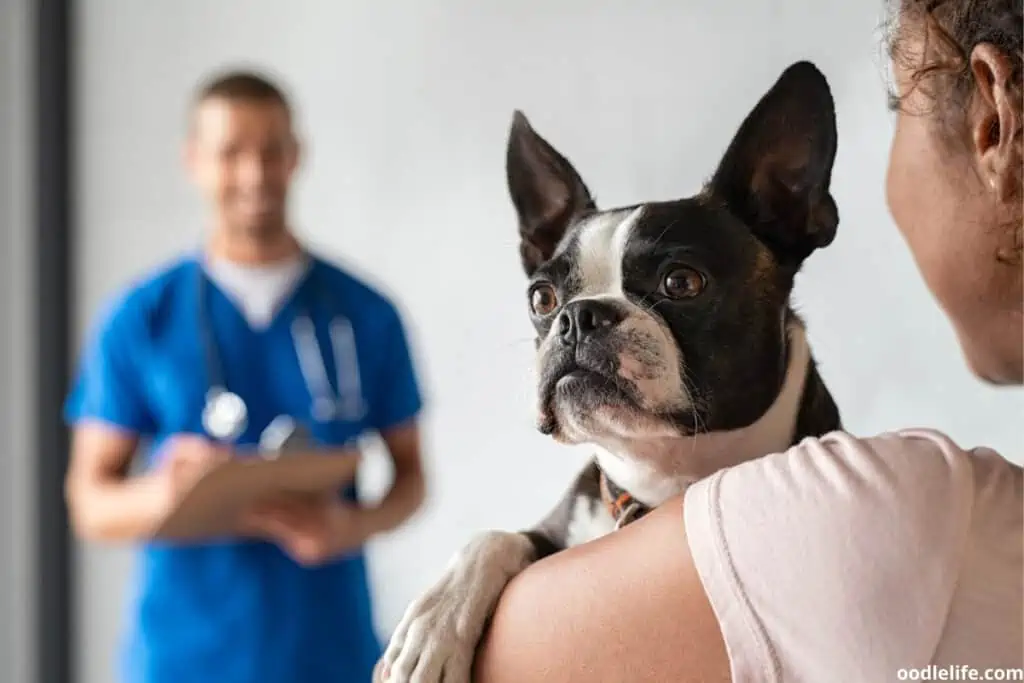
How to Prevent Your Dog From Having Diarrhea?
Thankfully, you have many options to help stop your dog from having diarrhea at night. I’ll go over them below.
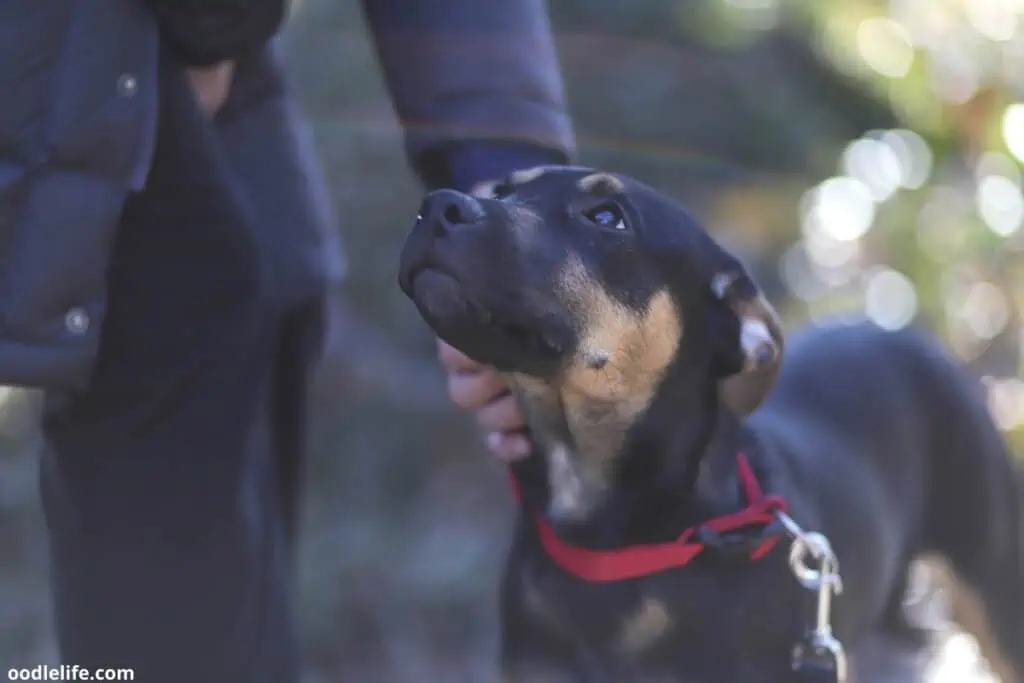
Keep Your Dog Calm and Happy
I’ve already gone over how anxiety and stress can lead to diarrhea in dogs, especially at night. That’s just one of many reasons to keep them calm and happy at all times.
Get Your Dog Dewormed
Deworming is a part of veterinary care, so ensure you bring your canine to the vet regularly. If worms are causing the diarrhea, this should resolve the issue.
Diet Changes Should Be Gradual
If you ever want to make changes to your dog’s diet, do so gradually. This will help you notice any problems and avoid severe reactions, such as diarrhea.
Make Sure Your Dog Isn’t Eating Things They Shouldn’t
Keep an eye on your dog and ensure he isn’t left alone around things he shouldn’t eat. Many dogs love to chew on everything they can, and maybe your pet has been eating things that he shouldn’t.
Final Thoughts: Dog Has Diarrhea at Night
So, now you know why your dog has diarrhea at night. I’ve had this exact problem with my pooch in the past, and it ended up being because of a diet change. Sometimes it’s simple and easy to solve a problem if you know what it is.
If your dog has diarrhea, don’t neglect the problem. Over the longer term, your pooch could end up with dehydration. The diarrhea could also be a sign of a serious medical problem.
Ultimately, your pooch’s health matters more than anything.